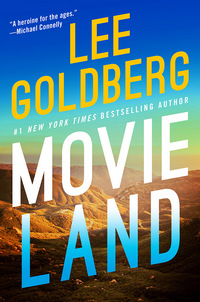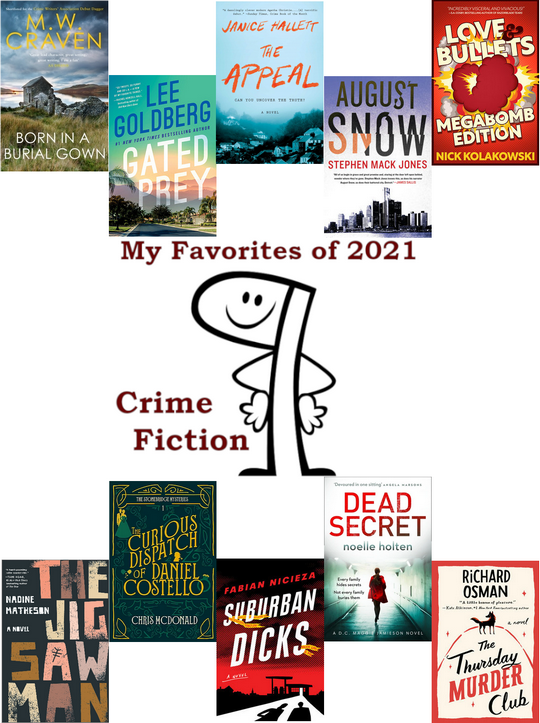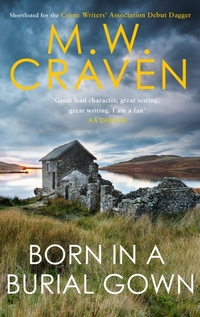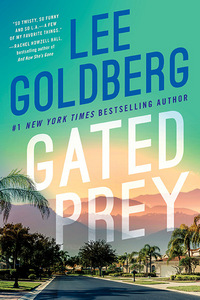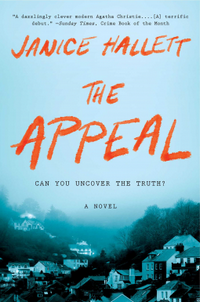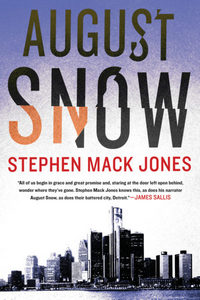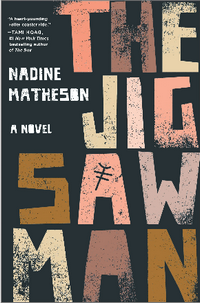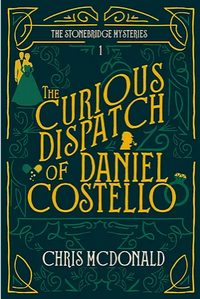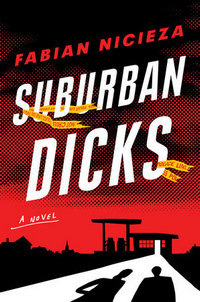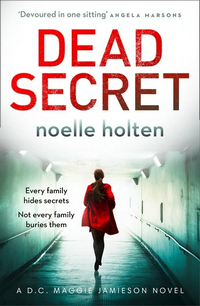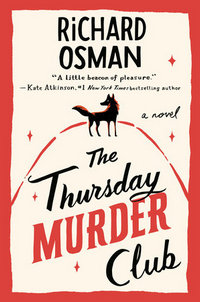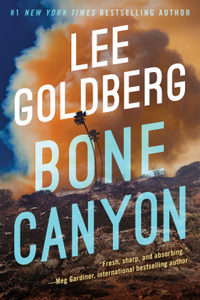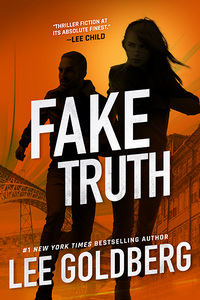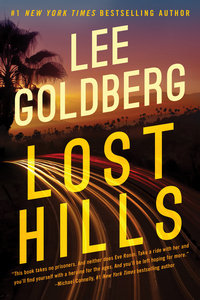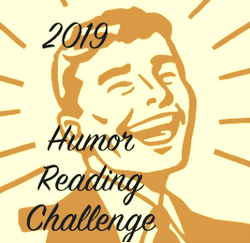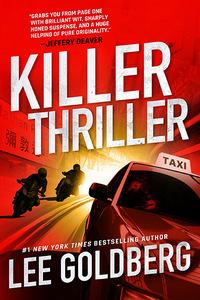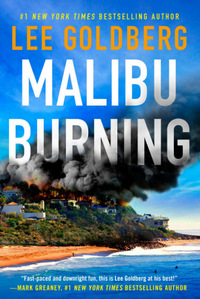 Malibu Burning
Malibu Burning
by Lee Goldberg
DETAILS: Series: Sharpe & Walker, Book 1 Publisher: Thomas & Mercer Publication Date: September 1, 2023 Format: eBook Length: 304 pg. Read Date: September 12-13, 2023

Walker thought, police work for Sharpe was an intellectual pursuit, a mind game, analyzing the clues to get to the bad guy. It wasn’t about the chase. It was about being smarter than his quarry and everybody else.
For Walker, police work was all about the hunt, and the risk that came with it. As long as he was wearing a badge and carrying a gun, there was no way to truly mitigate the risk that came with a job in law enforcement, which was something Carly either didn’t understand or didn’t want to.
What’s Malibu Burning About?
There are essentially two stories in this novel charging full-steam ahead until they inevitably collide. The first is a heist story—with a good revenge motivation in addition to the “let’s steal gobs and gobs of money” angle. The second is about an unlikely partnership between an experienced arson investigator and a rookie investigator (but former US Marshal, so he’s not that green and has habits to unlearn). It’s not a spoiler for me to say that these stories will converge—for one, what’s the point of them not? Secondly, that’s not the way Goldberg works—there’s no way his robbers aren’t going to be chased by some cops.
The Robbers
Let’s start off, like the novel does, with Danny Cole. If you’re familiar with Goldberg’s oeuvre, think of Nick Fox—only not as outlandish, and you’re pretty much there. If you’re not that familiar, Cole is a con man/thief—he has a few specialists (hackers, hitters, etc.) that he works with to pull off his heists and con jobs.
In the beginning of the book, we see him alllllmost get away with something—and if he hadn’t been forced into a good deed,* he just might have. Instead, he’s arrested, tried, and convicted. He gets his lawyer to push for him to serve his time in one of the convict firefighters’ programs. He spends years fighting fires for the State, forming bonds with others on the front lines, and starting to begrudge the state for how they treat those convicts. Also, he gets to case a few luxury homes while serving his time.
* How much was Cole trying to do a good deed and how much was him trying to avoid being charged with a more serious crime is up for debate—and Cole’s lawyer is ready for that debate.
One of his teammates dies because of State policies and one of those luxury homeowners throwing his money and power around. When his sentence is complete, Cole sets out to get revenge on the convict firefighter system, and that homeowner—all the while enriching himself. I mean, the money’s right there, he might as well. To do so, he and his team have to pull off one of the most audacious—and destructive—heists imaginable. The fact that his plan is actually feasible frightens me more than any horror or serial killer novel ever has.
The Cops
“You’ve shot seventeen men.”
“Is that a lot?”
“I’ve never shot anybody in over twenty years in the department.”That was hard for Walker to believe. “Not even a little?”
“Is it possible to shoot someone only a little?”
“I’m working on it,” Walker said.
Let’s turn our attention to the good guys now.
Los Angeles County Sheriff’s Detective Walter Sharpe is a detective in his fifties—he’s got plenty of experience and is good at his job. He’s not so great with people—particularly those he works with. He’s rarely satisfied with the easy answer, and will find reasons to think arson when no one else does (he’s also good at finding “accident” when the easy explanation points to arson). It’s not (just) that he’s a contrarian, he just cares more about evidence and understanding fire than anything else. This also applies to firefighters.
“Aren’t firefighters the experts on fire?”
“They are the experts on water.”
Pesky firefighters with all that water, washing away evidence. What are their priorities? Saving lives and buildings? In the end, Sharpe says:
Firefighters are the best friends an arsonist can have.
Against his will, Sharpe has been assigned a new partner. One with zero experience in investigating arson—he’s going to have to build him from the ground up. Former US Marshal Andrew Walker’s wife is pregnant and she’s put her foot down—his job is too dangerous, he needs to decide—her or the job. So instead of chasing down criminals (like Danny Cole), he’s now on the safer end of law enforcement—coming along after the crime is committed.
If you ever wondered what TV’s Raylan Givens would be if he prioritized Winona and Willa over Boyd Crowder, you’d get something a lot like Walker. Incidentally, Carly Walker is an entertaining character, and while I doubt the series will ever focus on her too much, I look forward to spending more time with her. The scenes between the couple feature an interaction that we don’t see a lot in Goldberg.
Anyway, Walker has a lot to learn about arson investigation, and Sharpe is just the right guy to teach him. They get along well enough, but both can see that their styles and personalities don’t necessarily mesh. The above glimpse of their first conversation illustrates some of that. But the higher-ups have spoken, so they work a couple of open and shut investigations together. Then they look around the starting point of a couple of wildfires in the area so Sharpe can show his trainee what to look for and what a natural/accidental fire looks like.
But between Walker asking beginning-investigator questions and some of Sharpe’s observations…these wildfires start to look planned. But why would someone put so many lives and so much property at stake?
So, what did I think about Malibu Burning?
Sharpe took out his phone. “Ill start with the front seat and the body, you shoot everything else. With your camera, not your gun.”
“That’s obvious.”
“Maybe to most people,” Sharpe said. “I’m not convinced it’s true for you.”
Oh, I just had so much fun with this. I realize it’s not that shocking for me to say about a Lee Goldberg book—but when he writes things like this, how am I supposed to react differently?
Danny Cole is such a great character—I don’t know if I could take a frequent diet of him and his antics, but a prequel or two to this with him? Shut up and take my money. Between the (arguable) good deeds he performs and the targets of his cons, it’s hard to see him as a real villain—yes, he seems to commit more felonies by breakfast than most people do all day, but in a Robin Hood sort of way.
Then again…when you think of what he does in this book, and the collateral damage he (seemingly) unthinkingly inflicts, it’s hard to maintain any kind of sympathy.
His targets are harder to work up any kind of sympathy or empathy for. Some are criminals, some are just…rich, entitled slimeballs. It is so satisfying to see bad things happen to them. Another target is the convict firefighting system—assuming Goldberg matched the realities of the system to what it promises the participants (and there’s no reason to think he doesn’t come close), something there needs to be addressed.
But the real star of the show is the partnership between Sharpe and Walker—they’re interesting enough characters on their own, sure—but watching them start to figure out how to work together is the best part of the book. I hope Goldberg doesn’t rush (I don’t think he will, because he’s a better writer than that, but I just want to say it)
Also, arson investigation is one of those things that long-running series dip into from time to time, but I don’t remember seeing a series try to tackle that regularly. I felt like I learned so much just from watching Sharpe work a scene and explain things to Walker. It was like watching Gideon Oliver explain something to John Lau or whatever local law enforcement officer he was dazzling. I’ll read that kind of thing any time.
So, great characters—on both sides of the law—an atypical angle for a procedural, interesting ethical questions, a mismatched partnership that will provide dividends both comedically and narratively for a good while to come, and Goldberg’s knack for making almost anything entertaining? What’s not to like about Malibu Burning? Go get it now, so you can say you got in on the ground floor.
The next book in this series is going to be a cross-over with Eve Ronin, apparently. It’s bound to happen—they all work for the same Sheriff’s Department, after all—might as well get to it early. It’s going to be great—if only to see Sharpe and Duncan together, that dynamic is going to be fun to see.

This post contains an affiliate link. If you purchase from it, I will get a small commission at no additional cost to you. As always, the opinions expressed are my own.
![]()



